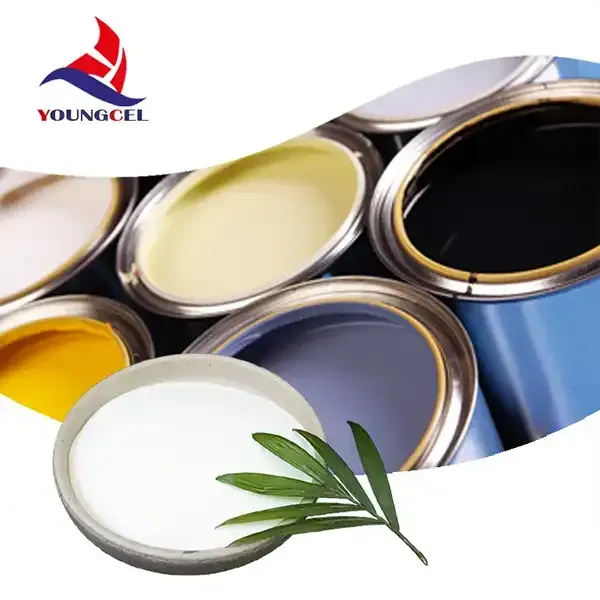Industrial Grade HPMC An Essential Polymer for Diverse Applications
Hydroxypropyl Methylcellulose (HPMC) is a versatile, non-ionic cellulose ether that has gained significant attention across various industries due to its unique properties and functionalities. It is particularly valued in the construction, pharmaceutical, food, and cosmetic sectors. This article explores the importance of industrial-grade HPMC, highlighting its applications, benefits, and future prospects.
Understanding Industrial Grade HPMC
Industrial-grade HPMC is a modified cellulose compound derived from natural cellulose sources. Through chemical processing, cellulose is treated with propylene oxide and methyl chloride, resulting in a flexible polymer that exhibits a range of desirable characteristics such as water solubility, film-forming ability, and thickening properties. The degree of substitution and the molecular weight of HPMC can be tailored, allowing for customization based on specific application requirements.
Key Properties and Benefits
1. Water Retention One of the most significant advantages of industrial-grade HPMC is its excellent water retention capacity. This property is critical in construction applications, particularly in cement and mortar formulations. HPMC helps maintain moisture levels, allowing for better workability during application and enhancing the bonding strength.
2. Thickening Agent HPMC serves as an effective thickening agent in various formulations. In paints, coatings, and adhesives, it provides the necessary viscosity while ensuring smooth application. This characteristic is also beneficial in the cosmetic industry, where it is used to enhance the texture and stability of creams and lotions.
3. Film Formation When applied in liquid form, HPMC can create a thin, transparent film upon drying. This property is advantageous in various industries, including food and pharmaceuticals, where HPMC is used for encapsulation and controlled release of active ingredients.
4. Biocompatibility and Non-toxicity Due to its natural origins, industrial-grade HPMC is considered safe for use in food and pharmaceutical products. Its non-toxic nature makes it suitable for applications in which skin contact or ingestion is possible, such as in dietary supplements and cosmetic formulations.
5. Temperature Resistance HPMC maintains its functional properties across a range of temperatures, making it suitable for applications that may involve varying conditions, such as construction materials exposed to heat and moisture.
industrial grade hpmc

Applications Across Industries
- Construction In the construction sector, HPMC is widely used in tile adhesives, plaster mixes, and putties. Its water retention and workability-enhancing properties contribute to improved application results, leading to durable and robust constructions.
- Pharmaceuticals In the pharmaceutical industry, HPMC is often employed as a binder, matrix former, and coating substance in tablets and capsules. Its ability to provide controlled release enhances the effectiveness of medications, ensuring optimal therapeutic outcomes.
- Food Industry HPMC is utilized as a thickener and stabilizer in various food products. It helps improve texture and shelf-life, making it a functional ingredient in sauces, dressings, and dairy products.
- Cosmetics The cosmetic industry incorporates HPMC in creams, lotions, and gels due to its ability to enhance texture and consistency, along with being a binding agent that helps incorporate various ingredients cohesively.
Future Prospects
The demand for industrial-grade HPMC is expected to grow due to increasing emphasis on sustainable practices and the shift towards plant-derived materials. Innovations in formulation technology and a focus on enhancing performance characteristics will likely drive further adoption across multiple sectors.
With ongoing research and development, industrial-grade HPMC is poised to play an even more pivotal role in the creation of new products, particularly in environmentally friendly applications. Its versatility and multifunctionality make it an invaluable component in a wide array of industrial applications, highlighting the significance of this polymer in today’s manufacturing landscape.
In conclusion, industrial-grade HPMC represents a vital ingredient in modern production processes, offering a blend of performance, safety, and efficiency that resonates across diverse industries. Its unique properties not only enhance product quality but also contribute to the advancement of sustainable and innovative solutions in manufacturing.
-
Rdp Powder: Key Considerations for Wholesalers in the Building Materials IndustryNewsJul.08,2025
-
Key Considerations for Wholesalers: Navigating the World of Hpmc - Based ProductsNewsJul.08,2025
-
Hpmc Detergent: Key Considerations for WholesalersNewsJul.08,2025
-
Key Considerations for Wholesalers: China Hpmc For Tile Adhesive, Coating Additives, Concrete Additives, and MoreNewsJul.08,2025
-
Crucial Considerations for Wholesalers: Navigating the World of Construction MaterialsNewsJul.08,2025
-
Key Considerations for Wholesalers Sourcing Additive For Cement, Additive For Concrete, Additive For Putty from Additive Manufacturer Shijiazhuang Gaocheng District Yongfeng Cellulose Co., Ltd.NewsJul.08,2025




